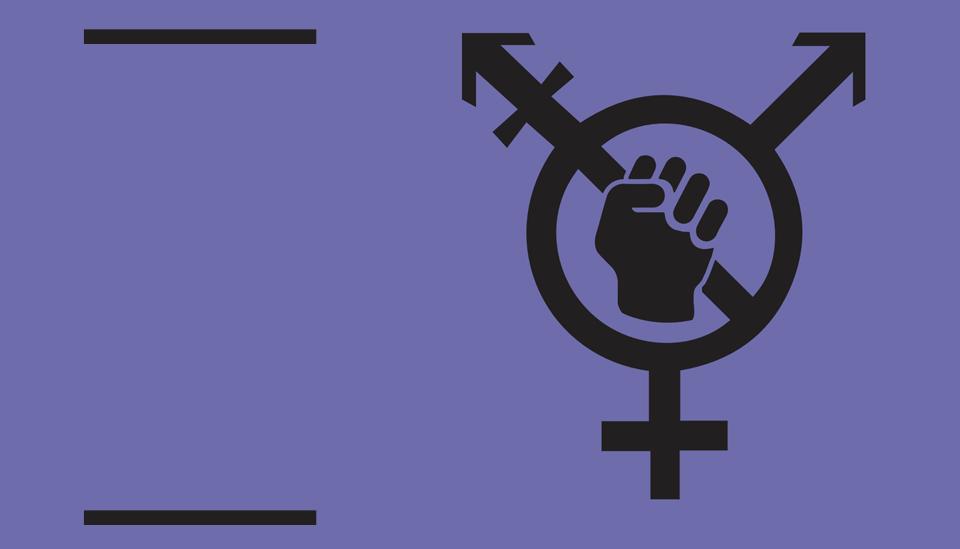
Image description: Symbol of gender with closed fist within. Image source: Privacy International Report, November 2018
On November 28th 2018, as part of the 16 Days of Activism Against Gender-Based Violence, we published a report entitled “From Oppression to Liberation: Reclaiming the Right to Privacy.” It draws not only from academic literature but also interviews with gender and privacy experts across sixteen different countries.
This report was an opportunity for us to look at the real-life impact of privacy and surveillance, across the world, thus stepping away from what Lindsay Weinberg – author of “Rethinking Privacy: A Feminist Approach to Privacy Rights after Snowden” – refers to as the myth of the “sovereign subject” who freely exercises their human rights.
It starts by presenting how historically privacy has been appropriated as a tool for the oppression of women, trans and gender diverse people under patriarchal rule. In particular, the report acknowledges how privacy has been used to protect men in cases of domestic violence, and to further control household-related affairs more generally, a space to which woman have traditionally been confined.
In particular, the report acknowledges how privacy has been used to protect men in cases of domestic violence, and to further control household-related affairs more generally, a space to which woman have traditionally been confined.
From architecture to legal texts and of course feminist critical theory, we analysed the role of privacy in shaping a private sphere where women have been contained. We go back to the early 20th century to look at the work Charlotte Perkins Gilman has done on the role of home and the private sphere in defining women’s experience. We explore Anita Allen’s concept of the “wrong kind of privacy” and highlight some of the key ideas from The Violence of Privacy by Elizabeth Schneider, who has looked at the way the right to privacy has been used as a “get out of jail free card” in cases of domestic abuse. We end the first part with the issue of online harassment and present Mary Beard’s work on the topic to contextualise it and place it at the end of a long history of silencing from the public discourse.
The second part of the report focuses on the way surveillance has allowed the perpetuation of patriarchy and systems of oppression.
Some of the issues we highlight are how patriarchy needs the rigid categorisation of ID systems to impose a binary perspective of gender, how welfare programmes participate in the control and constant monitoring of populations in vulnerable situations, how data exploitation seeks to perpetuate traditional gender roles in society, and how social surveillance limits the opportunities of women, trans and gender diverse people. And while patriarchy and systems of oppressions need surveillance, the reverse is true as well. Surveillance and data exploitation are about categorisation. They are about putting individuals in boxes, tagging them so they become easier to process. So when we carry IDs with an assigned gender on them or when we get married – and therefore register our family as a unit in the eyes of the state – we become processable.
The report also underscores the need to carry on the research in areas like the internet of things and artificial intelligence. Indeed, IoT really marks the end of this false divide between the physical world and the digital, i.e. the internet, and as such brings about new challenges for women, trans and gender diverse people that will need to be addressed.
The right to privacy is still more relevant than ever for women, trans and gender diverse people but we need to think beyond the narrow and patriarchal definition of the term, which has often been used to justify violence against women. As we explain in our related manifesto, we believe it is time for women, trans and gender diverse people to reclaim privacy in a way that will be meaningful to them.
The right to privacy is still more relevant than ever for women, trans and gender diverse people but we need to think beyond the narrow and patriarchal definition of the term, which has often been used to justify violence against women.
To support existing efforts of individuals and organisations who are advocating for gender rights and privacy, there is a need for more research that embraces the challenges of our era where technologies transform our bodies, our homes, and our public space. The age of data exploitation means that there has never been so much data collected about women’s bodies, putting them at risk of commodification. Artificial intelligence will also bring about its own challenges as prejudices embedded in datasets risk perpetuating the oppression faced by women, trans and gender diverse people. We hope that researchers and academics from across the world will join us in this fight. We look forward to working with you on this.
Publication date
Year of publication
- 8251 views





Add new comment